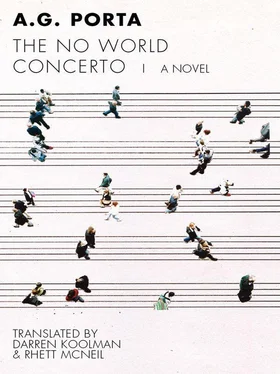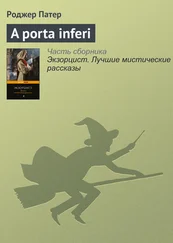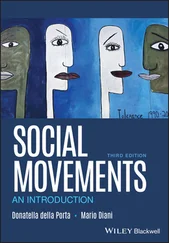She’s convinced they follow her. The feeling is always there, but for some reason, is more pronounced whenever she visits him. After finally managing to evade them, she goes to the window and peeps through a chink in the curtain just wide enough to see the dark, empty street below. They could be paparazzi, or a detective hired by her mother. They could be alien hunters who’ve found a way to detect her secret halo, who know her real name is Ka and, perhaps, that she came from a distant planet also called Ka. She has a feeling she’s being watched, that strange eyes are scanning her every inch. The screenwriter’s read somewhere that eyes have some sort of an effect on the objects they regard. Like the visual equivalent of echolocation used by bats. This is what produces our perception of distance, our consciousness of where an object or person really is, since it’s only an image, an illusion that appears on our retinas. But this process must also have an effect on the person or object perceived, which is why the girl senses she’s being watched, because she may have developed the ability to detect the movement of eyes on her body, by a kind of sixth sense. The screenwriter reads a series of descriptive passages the girl narrates in the third person. He reads slowly, sub-vocalizing the rhythm of each phrase, as if trying to uncover something new in the words, perhaps because he wants to estrange himself from what he wrote, as if he were in fact considering something she’d written herself: “3.31 I call any part of an image that characterizes its sense an expression (or a symbol). On the bed, the old alien hunter talks about youthful skin — dispassionately, as a dermatologist would, or so it would seem — while running his fingers slowly down her back and up her thighs and moving them stealthily toward her breasts. When he speaks about young women’s skin, he has the air of an expert, and expatiates as if it was the most important topic in the world. The female student knows exactly what he’s up to, but acts as if she doesn’t, acts interested in his discourse — as if she’s never heard anything so intriguing in all her young life — because she wants to seem innocent, inexperienced, for that’s the way he likes to think she is. He wants to know if she’s going out with someone. He must’ve asked her a dozen times by now, and every time her answer’s been the same. Yes, she says again, knowing he wanted the other answer, knowing a No would put his mind at ease, and a Yes would only make him suffer. 3.313 In the limiting case, the image becomes a constant, the expression becomes a proposition. Now, in the City in Outer Space, the old professor shudders in recalling that moment. Now he writes only to record his memories. If anyone ever finds this great floating spaceship, this City adrift in Outer Space, they could reconstruct his life on Earth with his words, including his version of the war. He likes to dream of such an outcome to ease the passage of the years, to make sense of his life as a survivor alone in a desolate city, to make him believe the record of his experiences will not have been written in vain, whatever the number of intervening centuries. But he knows it’s an absurd fantasy.” The girl returns to the window to peer through the chink in the curtain. The screenwriter begs her to stay. She doesn’t usually smoke, but this time it’s she who lights a cigarette and puffs at the ceiling. I’ll take care of you, she hears him promise. And you’ll be able to write as much as you want, he says while moving a stack of paper away from his desk. She keeps looking out the window. There’s a man down there at the corner — a guy she’s seen before, standing in the very same place; at the very same time, perhaps. But the shadows are obscuring his features. It’s probably just some guy waiting for someone. But then she remembers the time, and wonders who or what he’d be waiting for in the early hours of the morning. Maybe she didn’t manage to evade her stalkers after all. Maybe her fate has already been determined and they’re waiting for the right moment to move in on her. The screenwriter promises to protect her. What do you want more than anything else in the world? he asks her. She doesn’t answer him, doesn’t take her eyes off of the window. It’s a stupid question. She’s rich and already has everything he can offer and much more. Besides, what she wants more than anything else in the world no one can offer her. She must create it herself. The screenwriter suddenly feels distant from her, that he doesn’t know anything about her. He doesn’t know what else, besides writing, could possibly satisfy her. Outside the Institute, they’ve only ever been together in a dingy hotel room, or posing in a few random photographs. He tries for a moment to recall where else they might have been together. Of course, there was the night of the concert, the dinner afterward, and the running around the city with her and her retinue. But that doesn’t count, he thinks. It wasn’t a very good night. I’ll teach you everything I know, he says, breaking the silence, the great writers, their works, everything. We can even read them aloud together — it’ll be great — just promise you’ll stay. She ignores his supplication and keeps looking coldly out the window at the man on the street corner. She doesn’t even blink when the smoke rises up from the ashtray and drifts into her eyes, passing her face undisturbed, as if she were holding her breath, in case displacing the plume might give her away. You’ll have nothing to do but write, he ventures. We’ll just shut ourselves in this room forever. It will be our own little paradise.
It’s quiet. The streets are deserted. The traffic lights are signaling in vain. The silhouette on the corner has abandoned its vigil and the girl is no longer peering through the curtains. The screenwriter’s still begging her to stay with him, still promising he’ll protect her. She doesn’t see how this paradise of his could benefit her writing. He can’t conceive of any paradise without her. But this could be fleeting. He may not feel the same way later on. He lowers his head and his eyes flit to the keys of the typewriter. Then the girl starts talking again, and seems like her old self. Why would a mind build an imaginary world around itself? she asks, referring to her idea of a whole world inhabited by beings who aren’t aware they’re from another planet. What role does such a mind play in the lives of these characters? What gives it the impression it’s created a world at all? These are the questions that constantly run through her mind, the answers to which, like indefinite shapes, are always vague, although becoming more distinct with every passing day. Perhaps her work should deal only with this. The girl asks the screenwriter for another cigarette and lights it by the window. Let’s imagine that nothing around us truly exists — that however much we believe what we see and touch is real, it’s all in fact the creation of a single mind; that that mind is but a thoughtlet in one small corner of another, greater mind — the one that conceives the universe; and that the universe is but a thoughtlet in an even greater mind, and so on, ad infinitum. Is it physically possible, or even logically feasible, to have more than one universe? The screenwriter doesn’t know. The girl expels a mouthful of smoke and asks: Does this cigarette exist? The smoke? “2.063 The sum-total of reality is the No World.” A slight alteration of W’s pronouncement. She goes back to her initial inquiry. She thinks the answer must be simple, because a thoughtlet is like a fundamental particle, and these constitute everything else in existence, everything a mind learns, and everything it imagines, are composed of these. And if it bodies forth a whole world, it must do so because it doesn’t want to be alone. It’s the only possible answer to the question. It’s the only answer the girl can think of. Listening to her, the screenwriter starts thinking he should imagine his script not as a series of concentric layers like an onion, but of a series of parallel planes, each successive one subsumed in the next. So where should he situate the girl’s watcher in the shadows? Should he exist in the same world in which she moves, or should he exist in the world she imagines? The plane she calls real, or the one she’s created? He parodies an old controversy, but instead of mathematics, he asks himself whether it was the No World that was discovered or invented. Perhaps he should avoid philosophical polemics and stick to thinking about the story’s subplots and themes, something better suited to a man of his trade. Nothing exists outside our minds — there is only intellectual curiosity, delusion, love. And aren’t these the very things the movies try to capture?
Читать дальше












